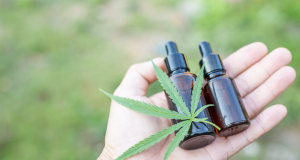Synthetic cannabis, of which Spice is an example, is linked to serious health issues ranging from breathing difficulties to psychosis. Spice is not a single drug, but a selection of laboratory-made chemicals that mimic the effects of tetrahydrocannabinol (THC), the main psychoactive component found in cannabis.
Northern Ireland’s Public Health Agency (PHA), has recently warned young people about the dangers of vaping the drug, after a number of individuals were hospitalized claiming that they believed they had purchased cannabis oil. “We have been alerted to serious issues around young people thinking they’re buying cannabis oil or THC to vape, only to discover that it’s in fact spice,” said Drug and alcohol lead Michael Owen.
“There is no way to know if what you’ve been sold is what you’re actually taking. For some, they’ve found out too late and ended up in hospital after suffering the severe effects of vaping spice,” he added.
The PHA insisted that whether substances are legal or not, they may carry risks and should not be consumed unless prescribed by a professional. He added that teens are more likely to use such substances during holidays. “They may be hanging out with friends more and trying out new things, but just trying something because your mates are doing it doesn’t mean it’s the right thing to do,” he explained.
Cannabinoids’ laws still enforced after Brexit
Meanwhile in 2020, the UK’s Food Standards Agency had pointed out that the European Food Safety Authority (EFSA) regulations imposed on cannabinoids would still be enforced after Brexit. The EFSA guidance is non-binding and it is therefore up to individual member states to decide whether to implement it or not.
The guidance states that: “Derived products containing cannabinoids are considered novel foods as a history of consumption has not been demonstrated.” This means that foods containing cannabinoids could be off the European and UK market for approximately three years, as this is the typical time it takes for an ingredient to gain novel food status.
Read Further: Belfast Telegraph












